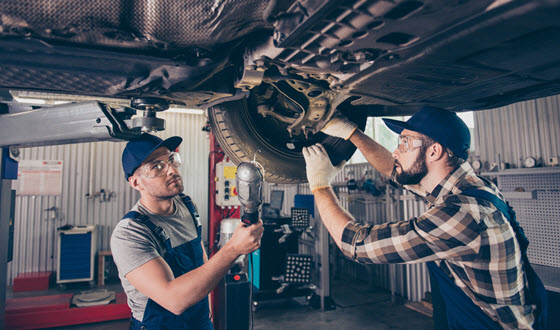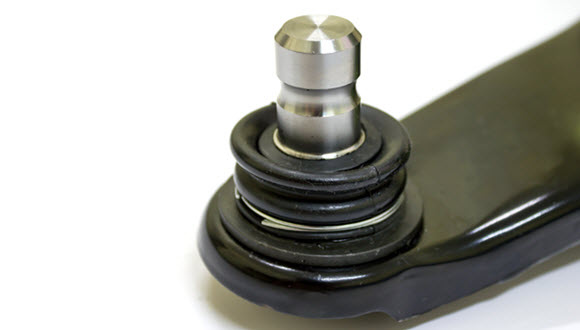How BMW Specialists in Dallas Can Help With Your BMW’s Ball Joint Failure
Posted on | 9 Aug 2019 By Anita Gaal
BMWs are a luxury to own and will give you the best driving experience possible. They are known for their sports performance while being comfortable and reliable. Keeping your BMW in the best working order should be a priority. It is important that you stay current on the service schedule and maintenance requirements.
The suspension technology of BMW provides you will a smooth ride. Driving over rough roads and terrain isn’t a problem for this vehicle. Even though it keeps your ride comfortable, the suspension receives a lot of wear and needs to be taken care of. An essential part of the suspension system is the ball joint. It is an often overlooked component of your vehicle when it comes to regular maintenance, but this important piece needs to be checked regularly. Here at Euro Automotive, we know how to properly take care of your BMW and its ball joints.
What is a ball joint?
A ball joint holds together the front suspension. It is a pivot point that allows for a limited range of movement between the suspension and the wheels. It is an important component that keeps your wheels from moving freely. If this part breaks, the outcome could be disastrous due to the fact that the wheels cannot be controlled. When the ball joint fails, the tires typically turn outward and damage the fender.
What are the causes of ball joint failure?
Everyday Use: Just like any moving part, ball joints experience wear. Normal everyday use is the main cause of ball joint damage. Joints that are not properly greased will fail quicker due to excess friction.
Environmental Factors: The environment plays a large role in ball joint failure. Excess heat can dry up the oil that is used to keep the joint lubricated. On the other hand, rain and high humidity can cause damage to the steel and the joints can break.
Damaged Seals: Old seals will crack or break over time. Defective seals cannot protect the joint and will allow the oil to leak and debris and dirt to get through.
Common Signs of a Defective Ball Joint
If the ball joints in your BMW are damaged, you will feel it in the suspension. The ride will no longer be as smooth as it once was and you may hear strange noises and feel vibrations. Below are some of the common signs of a defective ball joint. If you notice any of these symptoms, call us to schedule an appointment today.
Irregular Tire Wear: If your BMW is properly aligned, your tires should wear evenly. If one edge is wearing more than the other edge this can be a sign of a worn ball joint.
Vibrations: Vibrations can also be a symptom of a failing ball joint. When a ball joint is loose in the socket, this vibration can occur. The vibration will usually only come from one side of the vehicle and can often be sensed in the steering wheel.
Clunking Noises: As a ball joint wears, it becomes loose in its socket. When driving on rough roads or making turns, the loose ball joint can make clunking noises. This is the most common sign of a failing ball joint.
Loose Steering Wheel: A wandering steering wheel can be caused by a worn-out ball joint. If the car is properly aligned, it shouldn’t wander back and forth on its own. This can be dangerous since it is hard to keep the vehicle heading straight.

Call us Today
Here at Euro Automotive, we can access the ball joint failure in your BMW. Our mechanics specialize in luxury European auto and repair services. Whether you are experiencing ball joint failure or just need to have your car serviced, we are here to help. There’s no need for your take your BMW to a dealer and pay their high prices. We can do everything that they can do, and we can do it cheaper.
Call us today to schedule your appointment. You can reach us on 214-956-7744. You can visit us at 3421 W. Northwest Hwy. We proudly service the areas of Dallas, Garland, Arlington and Fort Worth, TX.










